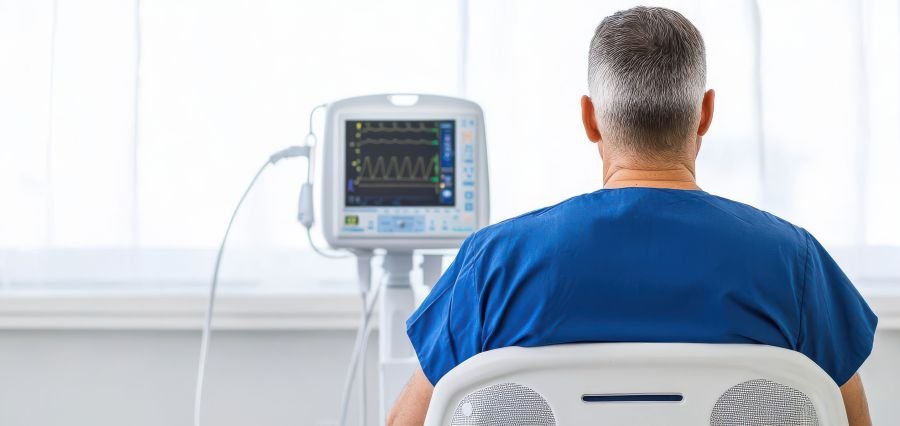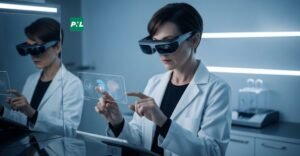Monitoring Health is no longer tomorrow’s dream — it’s already a reality and revolutionizing the way wellness is approached by patients, physicians, and healthcare systems. With the introduction of wearables, artificial intelligence-powered diagnosis, and almost real-time data sharing, monitoring health today is more proactive and preventative rather than reactive.
Whether you’re a workout enthusiast monitoring your heart rate or a healthcare center monitoring your patient’s vital signs, the strength of Monitoring Health is that it can sense, scan, and respond — before problems start. This blog explains how this game-changing solution is revolutionizing patient outcomes and allowing individuals to get a jumpstart on wellness.
Why Monitoring Health Makes a Difference Today
Increased levels of chronic disease, passive lifestyles, and mental illness have made it necessary that the conventional checkups be altered to continuous care models. Monitoring Health enables symptom detection at an earlier stage, offers personalized feedback, and provides timely medical care.
What used to take months of hospital visits can now be accessed in the palm of your hand through mobile apps, wearables, and remote consultation websites. Patients can monitor their vitals 24/7, it becomes a habit and not a burden.
Real-Time Data: The Backbone of Monitoring Health
One of the strongest features of digital health tracking is having the capacity to gather data in real-time. In-built sensors in smartwatches, glucose trackers, and even sleep monitors gather the most vital measurements including:
- Heart rate variability
- Blood oxygen levels
- Sleep quality
- Blood sugar patterns
- Physical activity levels
This information, when passively gathered and processed, allows physicians to deliver accurate treatment plans, enhance diagnosis, and even anticipate impending health dangers. More important, it makes healthcare predictive rather than reactive — a clinician- and patient-friendly revolution.
Patient empowerment is what Monitoring Health is all about. When people are provided with access to comprehend their body better, they become self-interested in the care process of their own body.
Apps synchronized with wearable devices enable the user to track patterns, set goals, be reminded, and make intelligent lifestyle choices. From stress management to sleep wellness, these apps encourage self-responsibility and sensitivity.
Most systems also now incorporate dashboards as part of them, which enable patients to share information safely with healthcare providers. Openness like this generates trust and enhances the physician-patient relationship.
Benefits for Healthcare Providers
Doctors and medical practitioners are also gaining from state-of-the-art Monitoring Health systems. Rather than just depending upon symptomatic reports, they are now better placed to observe data reflecting the rhythm of the patient’s health on a day-to-day basis.
This change benefits with:
- More precise diagnosis
- Greater compliance of patients
- Greater post-surgery monitoring
- Lower risk of hospital readmission
- Lower overall healthcare cost
By applying analytics and AI, doctors can detect abnormalities beforehand and adopt preventive actions prior to the onset of disease severity.
Role of AI in Monitoring Health
Artificial Intelligence has an important role to play while analyzing massive health data in a matter of seconds. Right from detecting abnormal heart rhythm to warning sudden blood pressure surges, AI complements human intelligence by giving predictions based on data.
Machine learning programs are able to monitor individual long-term trends of health, learn them, and predict with growing and growing reliability. Such technology is transforming remote medicine, particularly in rural and remote locations.
Challenges and Ethical Concerns
While the breakthrough has been nothing less than spectacular, Monitoring Health is not without problems. Data privacy, device accuracy, and digital divide pose mammoth problems.
- Privacy: Whose data is it, and how is it protected?
- Accuracy: Are they safe, consumer-grade medical devices?
- Access: Can all afford or use them?
In an attempt to overcome such challenges, there has to be clear regulation, patient education, and accessible design to make digital health benefit proportionately available.
Case Study: Revolutionizing Lives through Health Monitoring
Imagine a patient with diabetes who has a CGM on his or her cell phone. Rather than having to finger stick multiple times a day, the monitor provides real-time glucose levels and trends and allows diet and insulin to be tweaked accordingly.
In time, the patient knows their triggers, develops healthier habits, and keeps complications at bay — all due to Monitoring Health in real-time. Scale this effect by disease and geography, and the ultimate consequence is a healthier, more robust population.
The Future of Monitoring Health: What’s Next?
The future of Monitoring Health holds much promise with advances in technology persisting. Here’s what’s in store for us:
- Integration in smart home systems for total well-being
- Implantable biosensors for monitoring in-body conditions in real time
- Blockchain use for secure, decentralized health records
- Genomics and bioinformatics for personalized medicine
Not only do these technologies increase life expectancy but also the quality of life — making health tracking a cornerstone of modern medicine.
Final Thoughts
Monitoring Health” is no longer an extravagance but a requirement. In a day and age in which time is no longer our ally and the shadow of health issues looms over us, being able to watch and react to one’s own health in real time is of the utmost significance.
With the intersection of technology, medical science, and design, we stand at the precipice of a new age of healthcare — an age of prevention, personalization, and engagement.
It is time to participate in this revolution, but not for us, for those that will come after. For when we are tracking health, we don’t just prevent sickness — we empower life.




